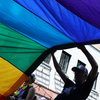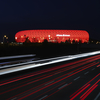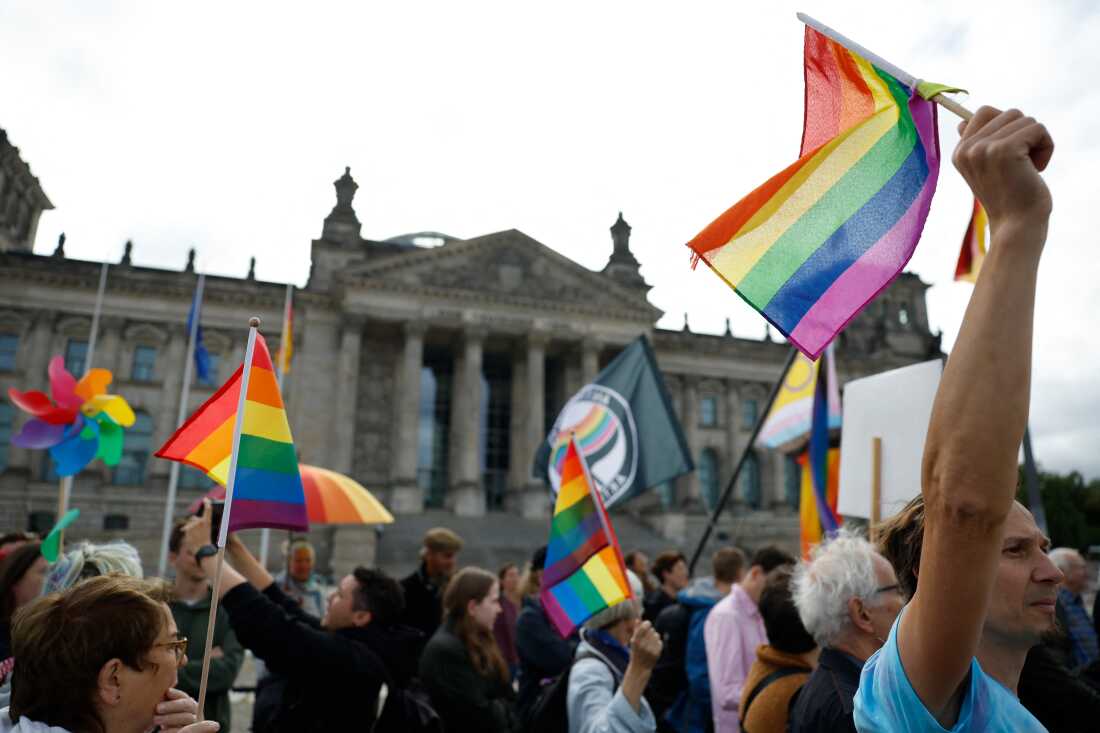
Demonstrators take part in an occasion referred to as “Present the flag: For queer visibility within the Bundestag!” in entrance of the Reichstag constructing that homes Germany’s decrease home of parliament, the Bundestag, in Berlin, on July 8. The conservative president of the Bundestag stated the rainbow flag would now not be raised on high of the parliament constructing throughout Delight month, which in Germany runs from June 28 till July 27.
Odd Andersen/AFP by way of Getty Photos
cover caption
toggle caption
Odd Andersen/AFP by way of Getty Photos
BERLIN — The tree-lined neighborhood close to Nollendorfplatz sq. in central Berlin is as homosexual right this moment because it was a century in the past.
It is the place Christopher Isherwood wrote novels chronicling the rise of the Nazis amid the town’s wealthy queer nightlife that impressed the musical Cabaret.
Each summer time, the neighborhood throws its personal smaller-scale LGBTQ+ Delight occasion separate from the town’s important annual parade happening this weekend.
It is simply one among greater than 200 Delight occasions happening in Germany this yr. However with far-right extremist teams staging anti-Delight protests, many Delight attendees concern for his or her security.
Sipping on a cocktail as the road get together will get underway, 62-year-old Georg Schmidt says he is relieved that this occasion is a relaxed affair. He says he attended a different local pride parade final month throughout city within the district of Marzahn and the temper there was tense.
“There was a large police presence to protect us from anti-Delight protests. We solely felt protected as a result of the police saved us aside,” Schmidt says.
The counter demonstration was organized by far-right groups designated by Germany’s domestic intelligence agency as violent and extremist. It is one of 17 extreme-right anti-Pride demonstrations which have taken place to this point this yr, in response to the Heart for Monitoring, Evaluation and Technique — a company that screens extremism. Some cities have even canceled pride due to threats.
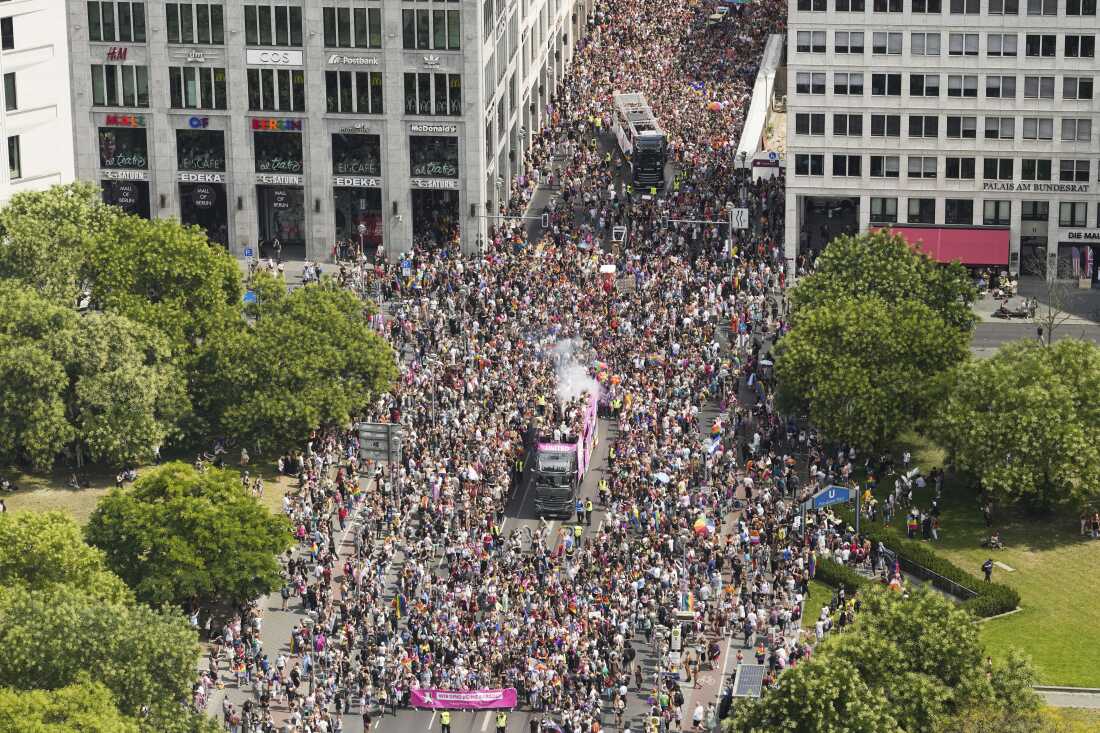
Revelers march down the Leipziger Strasse road throughout a Delight parade in Berlin, July 23, 2022.
Markus Schreiber/AP
cover caption
toggle caption
Markus Schreiber/AP
Sabine Volk, a researcher on the Institute for Analysis on Far Proper Extremism on the College of Tübingen, says these teams entice younger males who promote what they name conventional household values — a form of pleasure that has little to do with rainbow flags.
“The important thing slogan is that the German flag and Germany itself is already colourful sufficient,” Volk says. “And the general message is that queer life doesn’t have a spot in Germany.”
But it surely’s not simply far-right extremists who’re exacting about flags.
The brand new president of the German parliament, Julia Klöckner — who’s a member of Chancellor Friedrich Merz’s conservative get together — says the rainbow flag will no longer be raised on high of the legislature constructing throughout Delight month, which runs yearly in Germany from June 28 till July 27. She has additionally prohibited parliamentary public servants from attending Pride in an official capability and lawmakers have been requested to take down rainbow flags and stickers from workplace doorways.
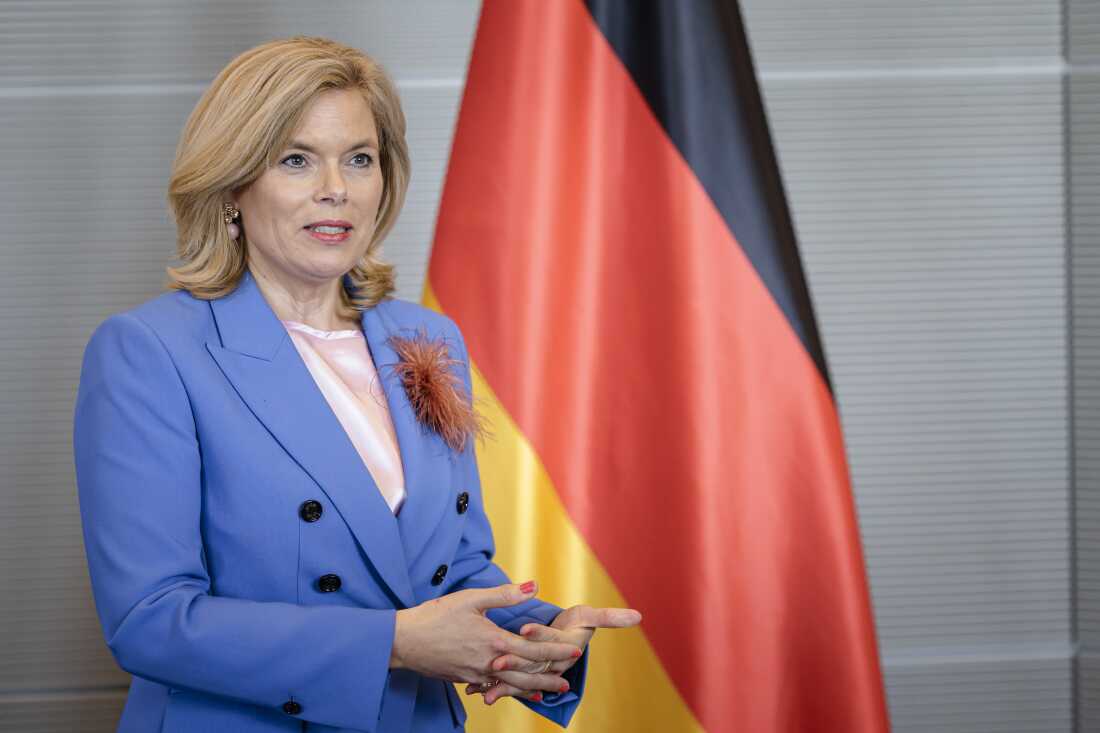
President of German Parliament Bundestag Julia Klöckner speaks to the media on July 8 in Berlin.
Thomas Trutschel/Photothek by way of Getty Photos
cover caption
toggle caption
Thomas Trutschel/Photothek by way of Getty Photos
Talking on public broadcaster ARD, Merz signaled his help for the rule at Germany’s parliament, the Bundestag, with the phrases, “the Bundestag shouldn’t be a circus tent” — a comment to which many have taken umbrage.
Merz backs his colleague’s argument that the decrease home should keep neutrality and can’t help occasions with a political agenda.
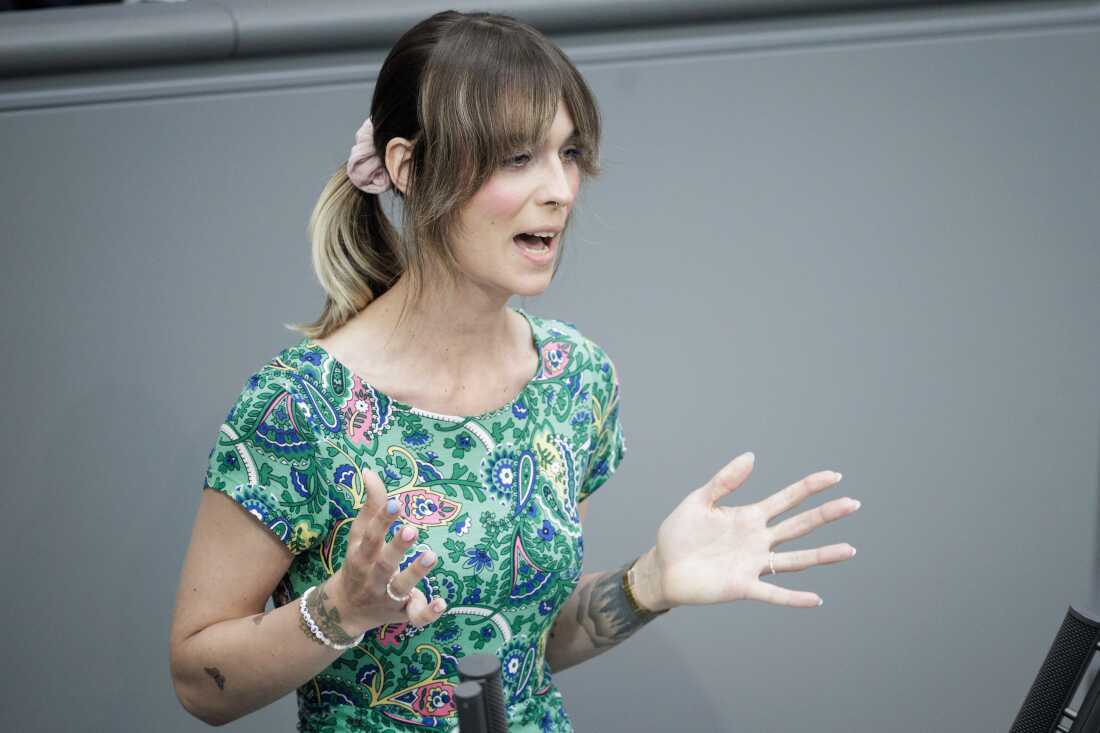
Nyke Slawik speaks throughout a parliamentary debate on queer hate crime within the Bundestag. Picture: Carsten Koall/dpa (Picture by Carsten Koall/image alliance by way of Getty Photos)
Carsten Koall/image alliance by way of Getty Photos
cover caption
toggle caption
Carsten Koall/image alliance by way of Getty Photos
Opposition Inexperienced Get together lawmaker Nyke Slawik criticized the transfer. “Declaring the rainbow a political image is extremely problematic” stressing that “queer persons are not an ideology; they’re folks!” Slawik told public broadcaster ZDF.
Slawik argues they’re folks more and more in want of safety. Germany’s federal police report an nearly tenfold increase in reported queerphobic hate crimes since 2010 and so they consider the vast majority of circumstances go unreported.
The problem shouldn’t be divided by get together political traces; criticism of Merz’s alternative of phrases has come from inside his personal get together. Sönke Siegmann, the chair of the Christian Democrats’ LGBTQ+ Affiliation, says some inside his get together are nonetheless catching up on terminology.
“In the event you say queer in my get together, most individuals take a deep breath and say: ‘Oh, that is a left-wing time period,’ ” Siegmann observes. He says he has spoken with Merz since he made his “circus tent” feedback.
“We defined to him what queer actually means and two days later when requested in Parliament about LBGTQ+ hate crimes and what his authorities will do about them, Merz really used the time period queer,” Siegmann says.
Again in the Nollendorfplatz space, rainbow flags fly each month of the yr. However native resident Chris Kelly says the temper right here shouldn’t be as “dwell and let dwell” because it as soon as was. He just lately opened a boutique that sells high-end clothes created from industrial energy rubber. He says enterprise is nice and he has a broad buyer base, however it was nearly unattainable looking for premises for the boutique.
“We discovered loads of appropriate areas to hire and our funds are stable, however lots of landlords rejected us, saying they did not need folks like us,” Kelly remembers. “Actual property brokers had warned us, however I used to be flabbergasted to come across such prejudice in Berlin’s queerest, gayest neighborhood.”


